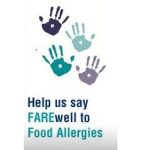Your Food Allergies Should Not Define Who You Are: Bullying Begone!

“I was just joking!” No doubt, you’ve heard it many times. It’s called a bully’s defense. It’s the scapegoat phrase that every bully, at one time or another, has used to squirm out of taking responsibility for their cruel actions.
But when it comes to food allergy bullies, there is no place for jokes or for bullying. Food allergies are most certainly no joke. Just ask any of the millions of kids who have one or more food allergies. One in every 13 children in the U.S. has a food allergy, according to the nonprofit Food Allergy Research & Education.
Bullying is more than just teasing among children. The power imbalance among children can be very harmful and potentially life-threatening. Although most bullying reported by children happens at school, it also occurs other places children gather, including playgrounds, school buses, at home or in a friend’s home, restaurants, camp, and on the Internet.
In some cases, the school bully is not a student but a teacher or other adult. Bullying a child with a food allergy can range from taunting the child to physically assaulting with the allergen. It is considered a form of “disability harassment.”
How Parents Can Help
Being part of your child’s school is essential to reducing the risk of school bullying. Parents should advocate for inclusive practices in the school district to improve the school climate, which will help all students. Be proactive and talk to the school administrator about how he or she would respond to food allergy bullying. A proactive discussion about how the administrator will respond will be helpful if a bullying incident occurs. Be informed about any anti-bullying guidelines or policies that both the parent and administrator can review together.
In a study of children with food allergies and their parents, parents knew about bullying related to food allergies only half the time. When parents were aware of the bullying, the child’s quality of life was reported to be much better than that of children whose parents were not involved.
Whether or not you suspect your child is being bullied, engage him or her in daily conversations about school and social activities. This allows the child to feel trust, open up about any bullying activity if it occurs, and get parents involved. Ask open-ended questions that require a response and can lead to further discussion, such as:
- Who did you play with at recess/PE?
- Who did you eat with during lunch?
- How was your bus ride to/from school?
Why Do Children/Teens Bully Kids with Food Allergies?
Children who bully food-allergic peers generally do so because they don’t understand food allergies and their serious consequences. Children also mirror adult behaviors. In a classroom, for example, if a teacher doesn’t include a food-allergic student in a class activity, then it appears to be socially acceptable to exclude the child in all social activities. The food-allergic child then becomes the outcast because he or she is “different.” In many cases, children who appear different are bullied no matter the type of disability. It is important to advocate for a more inclusive environment to reduce bullying overall at school.
Bullying has also been shown to increase risky behavior among children with food allergies. A study of food-allergic youth ages 13 to 21 found that
- 39 percent do not carry their epinephrine auto-injector.
- 54 percent had purposely ingested potentially unsafe foods.
- 42 percent were willing to ingest foods that “may contain” an allergen.
- 68 percent believe that educating their friends would make living with food allergy easier.
Risk-taking behavior among teens occurs when they feel different (a predictable consequence of bullying) and become less concerned about ingesting an allergen. As a result, they have more reactions; a real concern for parents and medical professionals alike. Educating teens and their peers creates better understanding and awareness about food allergies and serves to reduce bullying, risk-taking and its dangerous consequences.




